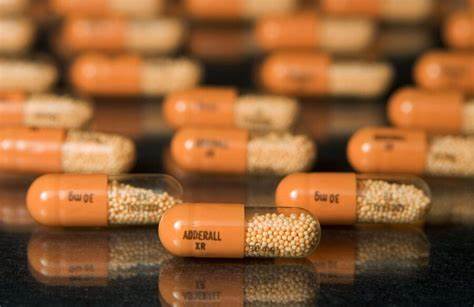ADHD medications are a crucial component of the treatment plan for individuals with Attention Deficit Hyperactivity Disorder (ADHD). These medications aim to manage the core symptoms of ADHD, including inattention, hyperactivity, and impulsivity. It’s important to note that medication is just one part of a comprehensive treatment approach that may also include behavioral therapies, educational interventions, and lifestyle modifications. Here’s an overview of the main types of ADHD medications:
- Stimulant Medications:
- Methylphenidate-based Medications:
- Examples: Ritalin, Concerta, Metadate, Focalin.
- These medications increase the levels of neurotransmitters, primarily dopamine, in the brain, improving attention and focus.
- Different formulations allow for various durations of action, such as immediate release (IR) and extended-release (ER) formulations.
- Amphetamine-based Medications:
- Examples: Adderall, Dexedrine, Vyvanse.
- Like methylphenidate, amphetamine-based medications also enhance dopamine levels in the brain.
- Vyvanse is a prodrug that is metabolized into dextroamphetamine and is known for its long duration of action.
- Dexmethylphenidate:
- Example: Focalin.
- It is the active d-isomer of methylphenidate and is available in an immediate-release form.
- Non-Stimulant Medications:
- Atomoxetine:
- Brand name: Strattera.
- Atomoxetine is a selective norepinephrine reuptake inhibitor (SNRI). It increases norepinephrine levels in the brain.
- It is non-addictive and may be a preferred option for those who cannot tolerate stimulant medications or have a history of substance abuse.
- Guanfacine and Clonidine:
- Examples: Intuniv (Guanfacine), Kapvay (Clonidine).
- Originally developed to treat hypertension, these medications have been found to be effective for some individuals with ADHD.
- They act on certain receptors in the brain, helping to improve attention and impulse control.
- Considerations for Medication Use:
- Individual Response: The response to ADHD medications varies among individuals, and finding the right medication and dosage often requires a trial-and-error process.
- Monitoring and Adjustments: Regular monitoring by healthcare professionals is crucial to assess the effectiveness of the medication and address any side effects. Adjustments to dosage or medication type may be necessary.
- Potential Side Effects: Common side effects of stimulant medications may include insomnia, decreased appetite, and increased heart rate. Non-stimulant medications may cause drowsiness, fatigue, or stomach upset.
- Abuse Potential: Stimulant medications have a potential for misuse and abuse, particularly among individuals without ADHD. Careful monitoring and adherence to prescribed doses are essential.
- Combination Therapy:
- In some cases, healthcare professionals may recommend a combination of medications or a combination of medication and behavioral therapy to address the unique needs of individuals with ADHD.
It’s crucial for individuals and their healthcare providers to work together to find the most effective and well-tolerated treatment plan. Regular follow-up appointments and open communication help ensure that the chosen approach continues to meet the individual’s needs over time. Additionally, lifestyle modifications, such as maintaining a healthy diet, regular exercise, and good sleep hygiene, can complement medication in the overall management of ADHD.

